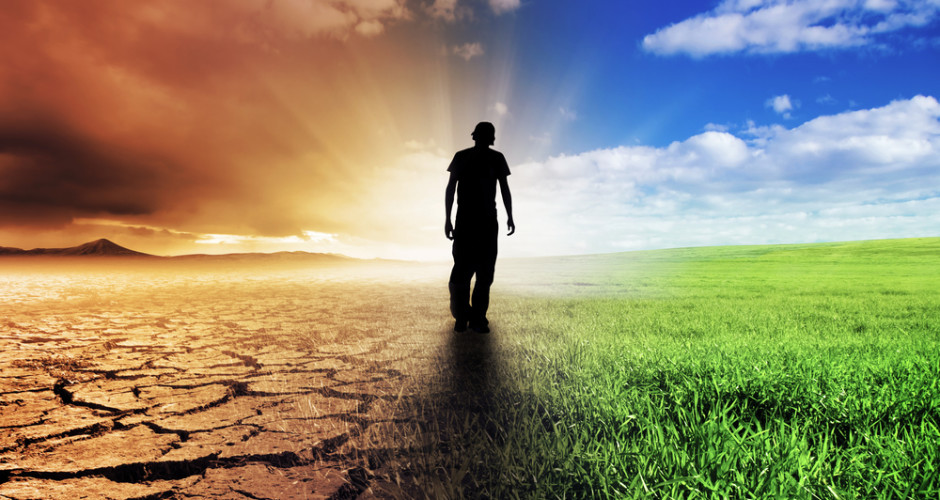Many Hindus recite a short Sanskrit prayer before stepping onto the floor after they wake up in the morning:
Samudra vasane Devi,
Parvata stana mandale
Vishnupatni namastubhyam,
Paada sparsham kshamasva me.
O! Mother Earth, who has the ocean as clothes
and mountains and forests on her body,
who is the wife of Lord Vishnu, I bow to you.
Please forgive me for touching you with my feet.
The whole earth is sacred. Earth, which is a well-endowed, beautiful Goddess, the wife of Vishnu, the Lord who sustains the universe. Such a Goddess, who deserves our reverence, must forgive us for we step on her so carelessly. The poet thinks of the earth in such lofty terms. The earth, so patient, so passionate, so forgiving, is our mother. You throw your garbage on her, you mine her depths, you pollute her with radioactive waste, but she does not react or retaliate. So patient and gentle is she, is our mother earth. Hindus consider every river, every mountain to be sacred. They bathe in rivers, build temples upon tall mountains.
Yet, unfortunately, no river is clean in India today, no river is fit to bathe in. The Yamuna, the scene of the legendry frolics of Krishna, is scarcely more than a sewage drain. The Narmada, one of our most sacred rivers, is little more than a trickle. The river is dying. Many millions of rupees were spent cleaning the Ganga, India’s holiest river, but she too is incredibly filthy.
Let me quote a few excerpts from an eloquent document called “Hindu Declaration on Climate Change,” presented at the Parliament of the World’s Religions, Melbourne, Australia, December 8, 2009.
“The Hindu tradition understands that man is not separate from nature, that we are linked by spiritual, psychological and physical bonds with the elements around us. Knowing that the Divine is present everywhere and in all things, Hindus strive to do no harm. We hold a deep reverence for life and an awareness that the great forces of nature—the earth, the water, the fire, the air and space—as well as all the various orders of life, including plants and trees, forests and animals, are bound to each other within life’s cosmic web. …
We cannot continue to destroy nature without also destroying ourselves. The dire problems besetting our world—war, disease, poverty and hunger—will all be magnified many fold by the predicted impacts of climate change. …
Humanity’s very survival depends upon our capacity to make a major transition of consciousness, equal in significance to earlier transitions from nomadic to agricultural, agricultural to industrial and industrial to technological. We must transit to complementarity in place of competition, convergence in place of conflict, holism in place of hedonism, optimization in place of maximization. We must, in short, move rapidly towards a global consciousness that replaces the present fractured and fragmented consciousness of the human race.
Mahatma Gandhi urged, ‘You must be the change you wish to see in the world.’ If alive today, he would call upon Hindus to set the example, to change our lifestyle, to simplify our needs and restrain our desires.”
Reverence for all life, preserving the earth, sharing and compassion – these are some of the obvious values in the Declaration. But there is another aspect: what you can’t save you have to mend. If we cannot save ourselves from climate change, then we must have the compassion to share what we have with those who are going to be far more seriously affected than ourselves.
Climate refugees are going to be at our door step, knocking at our doors for the resources we have. And the rich people are going to say: “These poor people, look how they multiply! What a nuisance.” But will this work? We will have to learn to share what we have with them. I mean I am going to give up my air conditioners!—each one will have to pay a price for helping others. I know many people will resent this, especially those who chill their rooms so cold in summer that they use two blankets.
Finally, in the declaration they say that beyond a point, you can’t save the world. It exists in an endless cycle of creation and destruction, every dissolution being the preamble for the next creative impulse. Hindus still know we must do all that is humanly possible to protect the earth and the resources for the present as well as future generations, but we must also remember that we are placed on earth to find out the nature of ultimate reality. The world is a bridge; we can’t build our homes on it. We have to think beyond the mere materiality of our lives to a higher dimension of consciousness.
For Hindus creation is in cycles, there are yugas or eons in which creation occurs, followed by destruction. So the destruction of this world of ours is also inevitable. Science also confirms this, not only in the theory of entropy, but in telling us that the sun itself has a limited life span. When it runs out of fuel, it’ll become a black hole. The earth is much younger than the sun. It has not been here forever. No one can predict how long life, as we know it, will continue. How it came about is itself a puzzle; it is not clear what it is for or how long it will continue. But we do know that nothing is forever.
Buddhists talk about anitya or anicha—transience; everything is transient, mutable and temporary. Our bodies are transient; we are not going to be here forever. We must therefore accept that this earth and the life it supports will also not go on forever. That does not mean that we should destroy the earth! But then the question is: why are we on this earth? The answer given is the very transience of all earthly joys makes you ask what is real, what is the nature of reality? That is why the Buddha says the world is on fire. Find out the reality. The reality for him is sunyata, the void, the nirvana or release into what is beyond the appearance. The implication is that when you inquire into the nature of earthly existence it points you towards a true understanding of reality. Everything on earth is so arranged that you begin to find your true self.
Instead, I think life on the earth challenges us to transform ourselves personally, socially and ecologically. We are not saviours, we are ourselves complicit subjects. Let’s not get into the ecological sin doctrine, the ecological saviour doctrine, and thus buy into ecological salvationism, ecological redemption, and ecological heaven. I don’t think this is going to be helpful. Rather we have to go for transformation of some sort during our limited span on earth. Reducing our own violence and destructive potential and actually finding our own fate in this process.
To conclude, I just want to say that the earth is facing an unprecedented challenge. And there are two paths ahead: one is that we commit suicide, we do it quickly or slowly. We destroy all our resources and our habitat and then we die. Have you seen The Matrix? Mr. Smith, the computer programme who hates humans, tells Neo, the protagonist, something amazing. He says that human beings are like a virus; they are the only species which takes over a habitat, which multiplies so much, which kills all the other species, which eats up everything else there, which destroys the habitat and then moves on into another habitat to do the same thing. It takes it over, destroys everything else in it, and finishes off that habitat too. Mr. Smith says, “I hate human beings, I don’t like their smell, I want to rid the earth of human beings.” Do we want to behave as Mr. Smith claims we do? Or do we want to change?
Hinduism, similarly, is in a crisis. I am not just saying that there is a climate crisis but that Hinduism is in crisis! Unless we find a way to be Hindu all over again in a way that is ecologically responsible, which is socially compassionate, we are going to be very bad Hindus. And I see really bad Hindus all around me: They talk one thing and do something else. This is what we have become: competitive, uncaring, loud, vulgar, un-aesthetic, out of touch with the earth…
We live in very interesting times. A crisis, after all, is also a time of change. In the world of medical sciences the word crisis also means a turning point after which the disease can either worsen or go towards a cure. That is where we are, in the eye of the storm, in a crisis of unprecedented dimensions. A crisis of ecology, economics, and evolution. A crisis from which a new combination of technology and spirituality will need to kick in to save us. And such a crisis also needs an integral and unified response. If we rise up to the challenge we may transform ourselves. Otherwise the writing is on the wall. Our planet will be destroyed by our own wantonness and we will all perish. We need a new Advaita, one that emphasizes the interconnectedness of everything, which will be one way to move forward from this crisis.
by Makarand Paranjape
*Makarand Paranjape is professor of English Literature at Jawaharlal Nehru University, New Delhi. He is the author of many books on religious and cultural themes. What is presented above are excerpts from a talk he gave at Fireflies Ashram, Bangalore, in November 2012.
From Meeting Rivers The Forum on Religion and Ecology at Yale






























